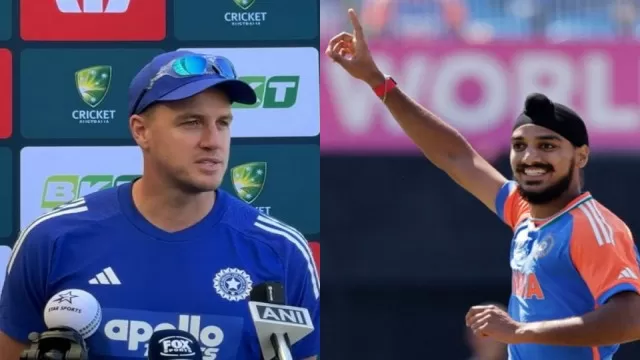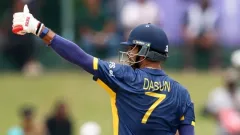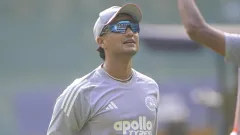India’s cricket team has often been known for its deep pool of fast-bowling talent, and the recent T20I series against Australia proved to be another example of how the management is thinking ahead. The decision to rest left-arm pacer Arshdeep Singh, despite his consistency and dominance in the format, raised eyebrows among fans. However, bowling coach Morne Morkel’s explanation shed light on a much larger strategy—one that is focused on fine-tuning combinations ahead of the T20 World Cup rather than short-term wins.
As the Indian team continues to build a balanced and battle-ready squad, the management has placed emphasis on workload management and experimentation. The recent series against Australia was a testing ground for newer bowlers and emerging combinations. Arshdeep’s return to the playing XI after two games proved the value of experience and patience, as he not only delivered a match-winning spell but also reinforced his importance to India’s T20 setup.
While Morkel’s tactical approach drew praise from cricket experts, it also revealed the depth of India’s planning. The team is not only preparing to win the next match but to dominate the global stage in the months ahead. Every rest, every rotation, and every selection appears to be part of a bigger chessboard strategy designed to maximize performance when it matters most.
The Strategic Rest: Why Arshdeep Singh Was Benched
When the team management decided to bench Arshdeep Singh for the first two T20Is, it wasn’t due to poor form or fatigue alone. Morkel explained that the move was part of a broader experiment aimed at testing the depth of India’s bowling attack. “There’s a bigger picture at play,” he emphasized, referring to the upcoming T20 World Cup and the need to explore different bowling combinations. The idea was to expose other bowlers to different match conditions, allowing the coaching staff to evaluate their temperament and skills under pressure.
Arshdeep, a seasoned campaigner in T20s despite his young age, understood the decision perfectly. Known for his calm demeanor and ability to deliver under pressure, the Punjab pacer reportedly took the rest period as an opportunity to analyze opposition patterns and refine his variations. Such professionalism reflects not only maturity but also the collaborative culture within the Indian setup.
Resting a top performer is never an easy call, but in the long run, it reflects strategic clarity. Morkel’s statement made it clear that India is not merely looking at short-term gains but at building a robust, well-rounded attack capable of adapting to any conditions across continents.
The Comeback Spell: Arshdeep’s Impactful Return
After sitting out the initial two matches, Arshdeep Singh returned to the side with renewed intensity. In the third T20I, he bowled a fiery spell, taking three wickets for just 35 runs and dismantling Australia’s top order. Two wickets came within the powerplay, setting the tone early, while the third at the death sealed the opposition’s collapse. His performance earned him the Player of the Match award, reaffirming his indispensable place in the team.
What made his comeback even more impressive was his adaptability. The conditions weren’t heavily favorable for pace bowling, but Arshdeep used subtle variations—mixing cutters, yorkers, and well-directed bouncers—to outsmart batters. The result was a clinical performance that justified Morkel’s trust in his readiness.
It also sent a message to other bowlers in the squad: opportunities may be rotated, but performance remains the key currency. The Indian camp now sees Arshdeep not just as a reliable bowler but as a mentor figure for younger seamers learning to navigate the high-pressure T20 environment.
Morne Morkel’s Long-Term Vision for Team India
Morkel, a veteran of over a decade in international cricket, has brought with him a philosophy rooted in balance, experimentation, and growth. He believes in building bench strength through consistent exposure, ensuring that every player in the squad understands their role and is battle-ready when called upon. His focus on combinations stems from the reality that injuries, workload, and changing conditions demand adaptability.
In his own words, Morkel emphasized the “bigger picture,” which involves not just preparing for one series but establishing a blueprint for success in global tournaments. By testing bowlers in varied match situations, he aims to build a core group capable of performing under pressure. His approach aligns with India’s evolving strategy of workload management—a concept that has become central to modern cricket.
Under Morkel’s guidance, the bowling unit has been encouraged to view competition within the squad as healthy and constructive. Players are urged to focus on consistency, fitness, and execution rather than short-term selection pressure. This approach is slowly transforming the mindset of the team’s fast-bowling contingent, which now prioritizes collective success over individual milestones.
Nitish Kumar Reddy’s Injury Update and Team Balance
Amidst the discussions around Arshdeep, India also faced an unfortunate setback with all-rounder Nitish Kumar Reddy being ruled out due to fitness issues. The youngster, who had impressed with his versatility earlier in the year, suffered a quadriceps injury followed by neck spasms. His absence forced the management to recalibrate the playing XI, giving opportunities to other players to step up in crucial roles.
Morkel offered a measured update, confirming that Nitish was undergoing assessment after completing light training sessions, including batting and fielding drills. The coaching staff remains optimistic about his recovery timeline, but his absence highlights the importance of rotation and managing player workloads—especially in a packed international schedule.
With several young players in contention for the all-rounder’s slot, India’s coaching unit has been proactive in creating contingency plans. This ensures that when one player is unavailable, another can step in seamlessly without compromising the team’s balance.
Preparing for the T20 World Cup: The Bigger Picture
India’s current approach is deeply anchored in preparation for the T20 World Cup. With limited matches left before the tournament, every game serves as both a test and a rehearsal. Morkel and head coach Rahul Dravid’s combined strategy revolves around identifying the most effective combinations across batting, bowling, and fielding units.
The rotation policy, once seen as controversial, has now become a hallmark of India’s adaptability. By giving every bowler a chance to face different match scenarios, the team is effectively strengthening its bench and preparing for any eventuality. In tournaments like the World Cup, where games come thick and fast, such foresight often determines championship success.
The management is also paying attention to players’ mental well-being, ensuring they are supported through phases of rest, injury, and comeback. With players like Arshdeep setting an example of professionalism, the locker room atmosphere remains competitive yet cohesive.
Looking Ahead: India’s Road to Dominance
With the series against Australia serving as an ideal testing platform, India’s focus now shifts to the future. The emergence of new talents, the return of experienced performers, and the leadership of a proactive coaching unit signal a bright path forward. Arshdeep’s resurgence, Morkel’s vision, and the squad’s growing confidence all point toward a team ready to reclaim global supremacy in T20 cricket.
As the countdown to the T20 World Cup begins, fans can expect more experimentation, more bold selections, and more thrilling performances. If Morkel’s words are anything to go by, India is not merely preparing for one series—they are preparing to build an era of dominance.
For Arshdeep Singh, the rest period was not a setback but a step forward. For Morne Morkel, it was a calculated move. And for Indian cricket, it was yet another sign of how far strategic thinking and player management have come. The bigger picture, it seems, is one where India doesn’t just win matches—they build legacies.
Also Read: Cristiano Ronaldo Breaks Silence on Retirement: “It’s Soon”
Disclaimer
Possible11 is a sports news and analysis platform designed purely for entertainment and educational purposes. All match previews, player insights, and team analyses are based on publicly available information and expert opinions. We do not promote or support betting, gambling, or real-money gaming in any form. Users are encouraged to enjoy our content responsibly and use it for informational purposes only.






















Give Your Feedback